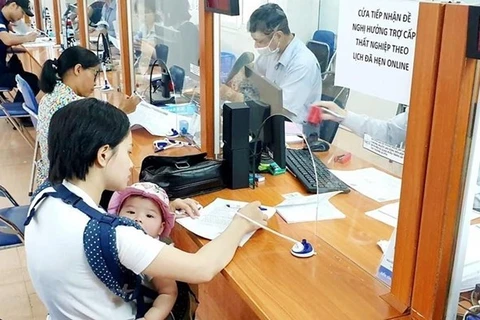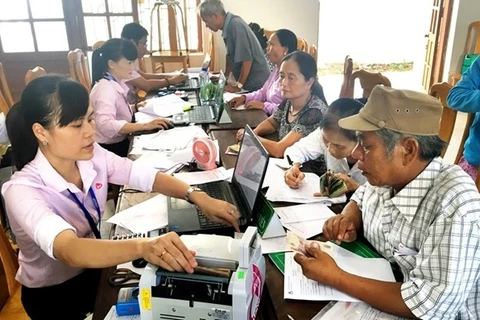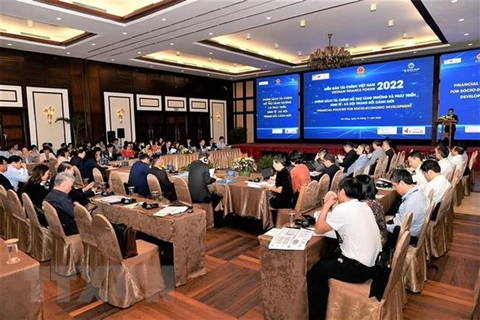Hanoi (VNA) - On December 8, the Ministry of Labour, Invalids and Social Affairs in coordination with United Nations agencies in Vietnam held a seminar on Vietnam's social policy towards 2030, with a vision to 2045.
Speaking at the seminar, Minister of Labour, Invalids and Social Affairs Dao Ngoc Dung said, after 10 years of implementation, the Resolution of the 5th plenum of the 11th Party Central Committee on some issues on social policy in the 2012-2020 period, has resulted in many important achievements. The perception of party committees, authorities and people on social policies has changed markedly.
The system of social policies has ensured fairness, comprehensiveness, and inclusiveness. The regulation mirrors international standards, ensuring people's right to security, contributing to economic development and political stability, and social order, improving the people's material and spiritual life, he said.
Most of the targets have met or exceeded the Resolution’s target, with many bright spots in the fields of caring for people with meritorious services, poverty reduction and social security, he noted.
The system of social policies in 2030 is aimed at all people and ensures comprehensiveness, and inclusiveness; meeting the needs of social security and social services for the people, creating development opportunities for all people and leaving no one behind. This creates a foundation for building a progressive, fair, equal, compassionate, united and mutually supportive society; meeting the goal of developing countries with modern industry and high middle income.
At the seminar, representatives of United Nations agencies and international experts shared experiences and recommendations and determined that Vietnam should focus on issues to improve social policies.
Ms. Pauline Tamesis, United Nations Resident Coordinator in Vietnam also pointed out that Vietnam is facing social policy challenges such as universal access policies that leave vulnerable groups lagged behind. Particularly, gender mainstreaming has not been effective, and indirect discrimination on the basis of gender has not been identified.
The United Nations Representative in Vietnam pointed out that public investment is insufficient and ineffective in social sectors. In the education sector, the 2020 spending picture shows that early childhood education accounts for 19.8% of total expenditure on education while vocational training is very modest at 1.5%.
These opinions will be summarised and reported to the Central Steering Committee, on the 10-year summary of the implementation of the Resolution of the 5th plenum of the 11th Party Central Committee and provide information on completing the new document on social policy for the 2023- 2030 period, with a vision 2045.
Previously, new social issues and priorities in Vietnam's social policy until 2030 with a vision to 2045 were identified during the process of reviewing 10-year implementation of Resolution 15-NQ/TW on social policy issues.
Minister of Labour, Invalids and Social Affairs Dao Ngoc Dung said that currently, the majority of goals set by the resolution have been completed. However, some lag behind schedule, including the rates of population accessing clean water, the rate of malnutrition among children under five years old, and the goal in ensuring fundamental education access.
Along with efforts by ministries, sectors and localities, it is necessary to mobilise the engagement of domestic and foreign experts and local residents during the review process.
Representatives of UN agencies in Vietnam said that in order to achieve the set goals, Vietnam needs to improve its policy framework by including social services that have not been mentioned in previous resolutions. This includes new resolutions such as protecting women and children from violence, environmental sanitation, focusing more on nutrition in the health sector.
Vietnam also needs to develop social services to meet individual needs. In particular, Vietnam needs to increase investment in both human and financial resources in community-based social services and human resources to provide basic social services, especially in the network of full-time social workers./.























